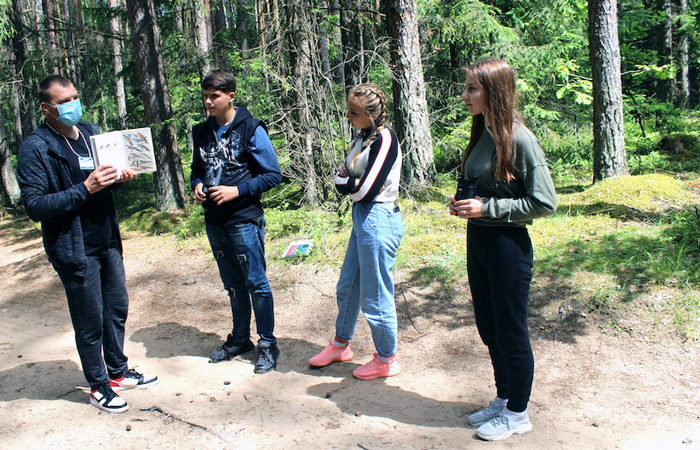The Green Schools summer shifts open in July of 2020.The programme will involve pedagogues and students from the six regions and the city of Minsk including children with disabilities.
The summer shifts aim to introduce the students to practical environmental protection activities and to improve the children’s health. The guys are going to have intensive and engaging training, sports and entertaining activities
The first shift of the Green Schools took off in Nadezhda Children’s Rehabilitation and Health Improving Centre, which is located in an ecologically clean green belt ashore the Viliejka Reservoir. Classes will soon begin in Zubrionok National Children’s Educational and Health Improving Centre.
In total, 350 students and pedagogues will take part in the programme during the 2020 summer season. The summer shift participants were competitively selected in educational institutions that either have the Green School status, or carry out activities in implementation of the Green School educational programme.
The training programme is expected to last 15 days, it is aimed at raising each participant’s awareness about the opportunities and importance of ecologically correct behaviour. The programme was developed in 2019 especially for organising the summer shifts in Zubrionok and Nadezhda centres.
The shift participants will attend classes on Biodiversity, Energy Conservation, Water Conservation, Waste Treatment, Environmental Monitoring, Environmental Awareness Raising among Local Communities. The classes will be held in the form of hands-on and project activities, art shops, interactive games and excursions. The summer shift programme also provides for health-improving activities, sports festivals, intellectual and entertaining events, quests, creativity development master classes.
The Green Schools summer shifts are organised under the Civic Engagement in Environmental Monitoring and Improving Environmental Management at the Local Level project, which is financed by the European Union and implemented by UNDP in partnership with the Ministry of Natural Resources and Environmental Protection.
 15.07.2020
15.07.2020





